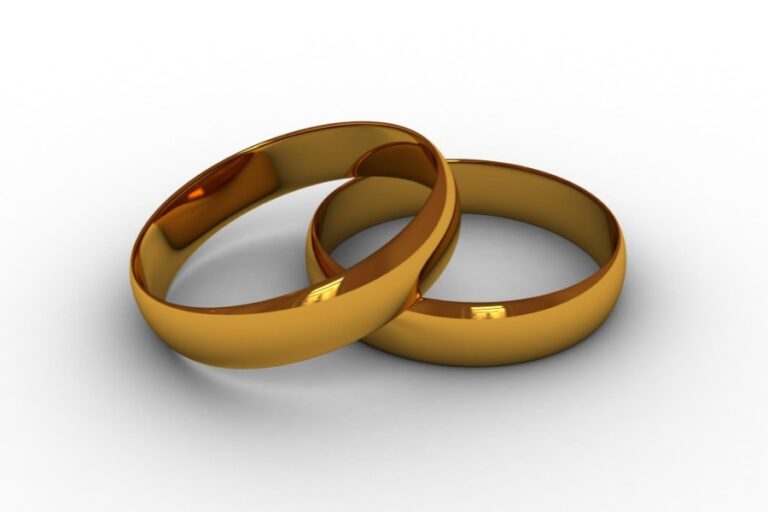What is Abuse in Relationship? Know these Helpful Tips and Be Safe
It’s an unpleasant topic, but a common one. Abuse in a relationship is a very real occurrence for millions of people, and it can happen without your partner even physically harming you.
Abuse is not a great topic to talk about, yet it is widely spread. Many want to know what is abuse in relationship and while there aren’t solid statistics on the issue, it seems that most people at least have heard of domestic violence.
Still, even an entire population of family and friends suffers from abuse at the hands of another person. This article will explore the basic characteristics of an abusive relationship.
What is abuse in relationship? This answer depends on who you ask. The parent, the victim, or the abuser. To better understand what abuse in a relationship is, it is essential to take all three perspectives into account.
Your answers to what is abuse in relationship are stated here and I hope you understand these opinions.
How to Know What is Abuse in Relationship

Abuse in relationships is a terrible thing to go through. The abuse can come from either the man or the woman, although women are more likely to be the victim of abusive relationships.
If you are in an abusive relationship, there are some signs that you can look for to identify how to know what is abuse in relationship.
Here are seven signs that you need to leave your relationship:
1. Your partner puts down your friends and family members.
2. You feel like you have no choice but to obey his/her orders.
3. He/she does not allow you to make decisions about the relationship.
4. If he/she is jealous all the time, it could be a sign that he/she has controlling behavior.
5. If he/she hits, pushes, or shoves you or threatens to hurt or kill someone including yourself, this is considered physical abuse and it should be reported immediately.
6. If he/she has ever threatened to hurt himself/herself to get what they want from you or manipulate your behavior and emotions, then this is emotional abuse and should not be tolerated at all.
What are the signs of abuse in a relationship?
There are many different types of abuse and they can be difficult to identify at first because they often start slowly and build over time. Some signs include:
1. Your partner has a bad temper and loses control easily.
2. He or she threatens to hurt you physically.
3. You feel afraid of him or her.
4. He or she pushes you around in some way (grabbing your arm but not hurting you).
5. You feel like you cannot do anything right with him or her around.
Types of Abuse in Relationship
What is abuse in relationships? It can be hard to answer this question because there are so many types of abuse in relationship. Abuse comes in many forms, including physical, emotional, verbal, and sexual.
Physical Abuse
Physical abuse involves physical harm to a person that causes injury or impairment. In some cases, physical abuse can be fatal. Physical signs of abuse may include injuries such as bruises or cuts that don’t seem to fit with the story the abuser tells you.
You should also be concerned if your partner shows signs of self-harm like cutting or burning themselves.
Physical abuse includes any intentional or unintentional act that causes injury, pain, or impairment. It can include:
1. Beating with fists or other objects.
2. Shaking, slapping, or hitting with an object.
3. Pushing, shoving, or tripping someone.
4. Holding someone down against their will.
5. Kicking, biting or punching a pet.
Emotional Abuse
Emotional abuse includes behaviors that cause another person to feel threatened or afraid. Some examples include name-calling, constant criticism, withholding affection, and isolating someone from friends and family members.
Emotional abuse can be difficult to detect because it doesn’t leave physical scars but it can leave deep psychological wounds that may not heal for years after leaving an abusive relationship.
Verbal Abuse
Verbal or emotional abuse can also include threats of violence against someone else or themselves as well as name-calling and insults about a person’s character or appearance that is intended to make them feel worthless. Verbal abuse is just as harmful as other types of abuse.
Domestic violence can take many forms, including physical abuse, emotional abuse, sexual abuse, financial abuse, and stalking. While all types of abuse are serious and harmful to the victim, it’s important to understand the different types of abuse before beginning a conversation about whether or not you are in an abusive relationship.
Sexual Abuse
Sexual abuse is any unwanted sexual contact that occurs without consent — whether the aggressor is a stranger or someone you know.
Financial Abuse
Financial abuse happens when someone uses money or resources to control your decisions or try to force you into doing something you don’t want to do (or fear).
For example, if your partner takes all the money out of your bank account without asking first, that would be considered financial abuse because they are trying to control your behavior by limiting access to funds.
What is the Percentage of Abusive Relationships?
Knowing what is abuse in relationship also requires knowing what is the percentage of abusive relationships too.
According to the National Coalition Against Domestic Violence, one in three women in the United States will experience domestic violence in her lifetime. The FBI reports that more than 4 million people have been victims of domestic violence.
The Centers for Disease Control and Prevention (CDC) estimates that more than 1 in 3 women has experienced physical violence by an intimate partner. In the United States, more than 10 million children witness domestic violence each year.
Now let’s check the impact of different types of this abuse in relationships.
What is Mental Abuse in a Relationship?
The term “mental abuse” is often used to describe a wide range of behaviors. It can include verbal assaults such as yelling, name-calling, and insults; threats of physical violence; actual physical abuse; manipulation; controlling behavior; isolation from friends and family; intimidation; stalking; and more.
Mental abuse is a form of abuse that may not leave any physical scars, but it can be just as damaging as other forms of domestic violence.
Victims of mental abuse often feel powerless and ashamed because they don’t know what is happening or why their partner is behaving in this way toward them.
Mental abuse can lead to low self-esteem and depression in victims, as well as an increased risk of developing post-traumatic stress disorder (PTSD).
Mental abuse is often difficult to identify because it doesn’t always look like other types of domestic violence; there may be no visible signs at all.
However, there are warning signs that your relationship may be abusive even if you aren’t sure exactly what type of abuse you are experiencing:
1. Your partner criticizes you or puts you down frequently
2. Your partner controls aspects of your life (e.g., finances, social activities, who you talk to)
What is Emotional Abuse in a Romantic Relationship?
Emotional abuse is a type of abuse that occurs when someone you’re close to, such as a partner, friend, or family member, tries to control you or make you feel bad about yourself. It can happen in any kind of relationship, including marriage or dating.
It’s important to know the signs of emotional abuse so you can take action and get help if it’s happening to you or someone you care about.
1. Your partner constantly criticizes, belittles, or ignores you and makes you feel bad about yourself.
2. Your partner has unrealistic expectations of who you should be and how you should behave.
3. Your partner says hurtful things just to hurt your feelings or make themselves feel better.
4. Your partner blames others for their own mistakes.
5. Your partner uses threats of harm against themselves or others to keep control over you.
What is Physical Abuse in a Relationship?
There are many different types of abuse. You may have been involved with an abusive partner, and you need to know what to look for in future relationships.
Physical abuse is any intentional act that causes injury or trauma to another person. Physical abuse can be expressed through; hitting, punching, slapping or kicking.
1. Hitting with objects such as a belt or chair leg.
2. Strangling or choking.
3. Throwing objects at someone.
4. Pushing someone downstairs.
How to Help a Friend Who is Being Abused.
If you have a friend who is being abused, there are many ways you can help them.
You have to follow careful steps to know how to help a friend who is being abused.
The first step is to show that you’re there for them and that they can rely on you. Be supportive and nonjudgmental, and let them know they’re not alone.
Here are some other things to keep in mind:
1. Listen to what they have to say.
Avoid asking questions or offering advice right away.
2. Try not to blame yourself or take responsibility for their situation.
3. Make sure they know there are options available if they want to leave their partner or get help from a domestic violence agency.
4. If you’re trying to help a friend who is being abused, the first step is to be sure that your friend wants help.
They may not feel that they want to leave the relationship or may not think that anything can be done. If your friend is too afraid or ashamed to confide in you, there are other ways you can help them:
5. Tell someone else. Tell your friend’s parents, another relative, their teacher, or another trusted adult.
6. Talk to them in a public place. Don’t give them time alone with their abuser.
7. Write down what they tell you and keep it in a safe place where only you have access to it.
This way, if something happens to your friend like if they disappear or die suddenly for no apparent reason, their story will be preserved for later reference by the police or other authorities investigating the case.
Takeaway
Conditions for being in true love and acceptance with others are acceptance of the self, tolerance, forgiveness, also willingness to make sacrifices.
Also, we must assess ourselves if we want peace and happiness or if we’re using any pretext just to manipulate a situation and somebody else.
Each of us must be able to sort out our reality. We shouldn’t rely on explanations from others that often don’t reflect the true situation. We have to judge for ourselves. That’s our responsibility.
If anyone thinks someone else doesn’t deserve their trust, love, or appreciation it is you who’s misjudging the reality because that person has the same right to exist as you do. What is abuse in relationship when both can value each and everyone around?

![10 Confirmation from God on Who to Marry [Easy Signs]](https://vieforth.com/wp-content/uploads/2022/06/Confirmation-from-God-on-Who-to-Marry-768x512.jpg)



